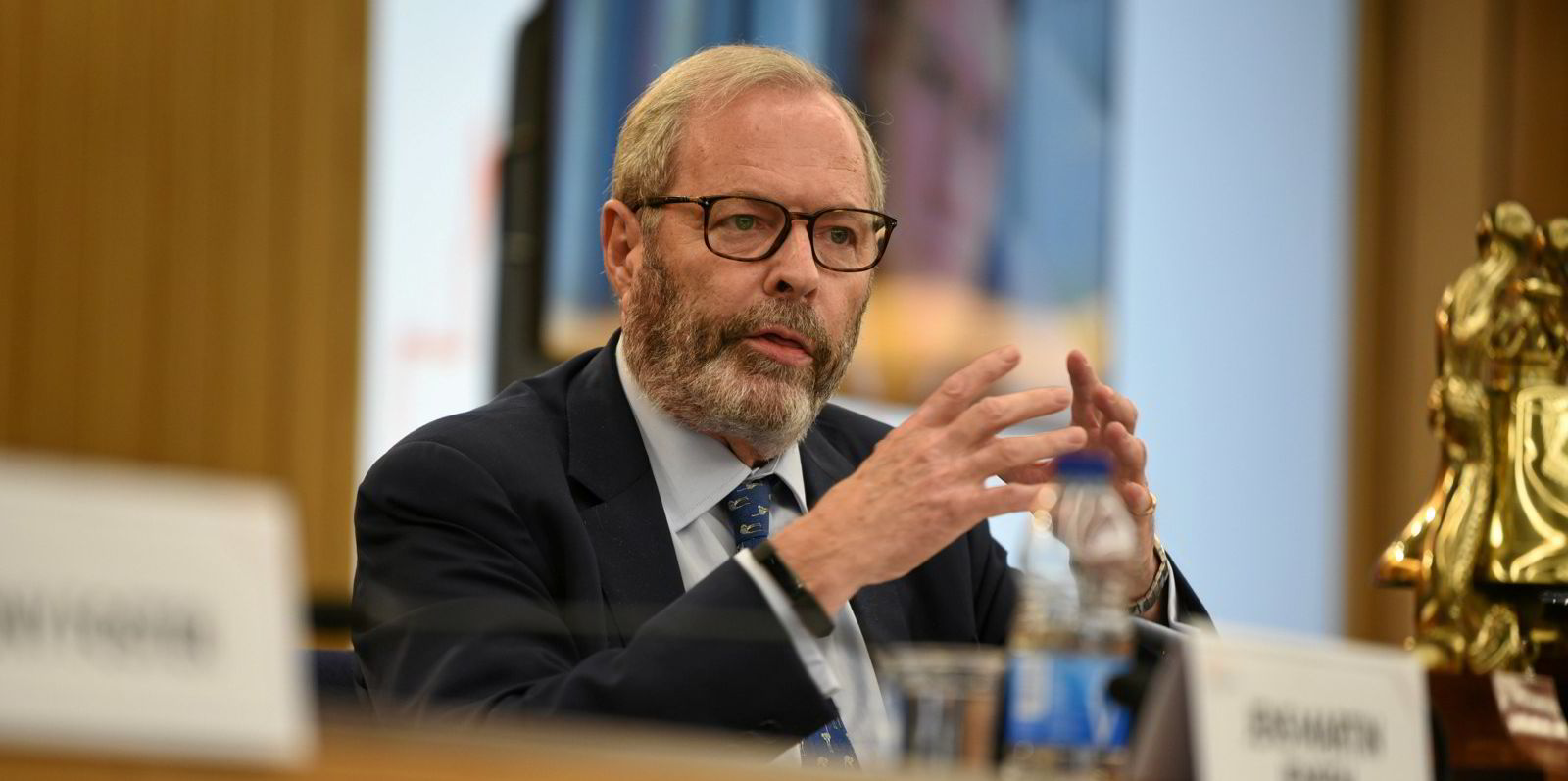Leaders of the shipping banks in the Poseidon Principles initiative to boost green lending have ramped up a commitment to aim for zero emissions after the COP26 climate negotiations.
"We expect to amend the Poseidon Principles ambition to zero by 2050 early next year once we see what comes out of COP26 and MEPC77," said Michael Parker, chairman of global shipping at Citibank and chairman of the Poseidon Principles Association.
"But we won't wait for the International Maritime Organization (IMO) if they don't respond to the various calls from several governments to raise their ambition to align with the Paris agreement," Parker added at the Ship Zero Conference in Glasgow.
The IMO’s 77th Marine Environment Protection Committee (MEPC77) takes place on the last five days of COP26. It will discuss midterm and long-term measures to reduce shipping emissions, including a potential cap and trade system and a greenhouse gas intensity limit for fuels.
Paul Taylor, vice chairman of the Poseidon Principles — and managing director, global head of shipping and offshore, at Societe Generale London — said the association had to ensure the principles were consistent with other commitments banks need to make toward aligning portfolios for greener lending.
"The Poseidon Principles can be agile. We can change the scope if required, and that is highly likely to happen after COP when the IMO comes under pressure to be more ambitious and aggressive," Taylor said.
Taylor added that the banking group, which now has 28 members, adopted the Annual Efficiency Ratio (AER) as the metric to calculate emissions because it was used by the IMO, but admitted it may not use the measure for ever.

It would continue to use the AER for the time being, he said, but could also be agile about using other performance measuring tools in future.
"Bear with us. Let's not let perfection get in the way of progress," Taylor said. It would take several years for banks to fully align their portfolios with supporting "true zero" he added.
Collaboration between the energy and power industries that will define the alternative fuels that become available, governments and regulators plus cargo owners who increasingly need to address supply chain emissions are key, Parker said, as bodies like the EU start to ignore the IMO as the shipping industry regulator.

"That is why COP26 is crucial for the [shipping] industry as an opportunity for governments to work together to prevent regulatory confusion that could delay rather than accelerate private sector investment," Parker said, stressing the importance that countries' IMO ambassadors support decisions that are consistent with what is agreed in Glasgow.
COP26 can support industrial scale shipping decarbonisation via national actions and clear targets for domestic shipping, Parker added, as well as meaningful market-based policy measures to take effect by 2025. He said the ordering of zero emission vessels should be the default choice no later than 2030.
The Zero Emissions Ship Technology Association (ZESTAs) conference is being held alongside the COP26 climate talks that started this week, with 13 governments, led by Denmark, yesterday calling for the full decarbonisation of shipping by 2050.




